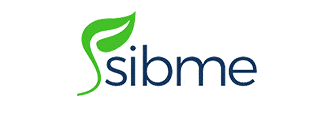Teaching is an academic pursuit. However, learning to teach is far from simply academic. And yet, so many teachers learn to teach sitting in a classroom, taking notes on Skinner, Dewey and Plato. Even when the time comes to learn the practice of student engagement, teacher preparation programs often ask students to read books on classroom management strategies and turn in a report on their “teaching philosophy.” The process is similar to what Deborah Ball likens to getting on a plane and being told that your pilot has read a lot of books about flying, and maybe done a few simulations, but that this flight across the Atlantic will be his first time in a real cockpit.
We expect teachers in K-12 classrooms to provide their students with personalized, differentiated teaching experiences. Why, then, do we continue to teach the teachers in a one-size-fits-none classroom?
Late in their teacher preparation experience, when students are deemed “ready” to teach, they are sent for a brief stint in a classroom, where the experience can be as meaningless as grading papers while watching a teacher teach. At the other end of the spectrum, student teachers can be thrown into a classroom and expected to teach entire classes on their first day. Many get the opportunity to “practice” in the university classroom, while their peers play act as students, trying their best to mimic a second grader as each takes her turn in the front of the room.
During these experiences, the luckiest of students get the chance to meet with a thoughtful field-supervisor, cooperating teacher, or professor who can give them some feedback on the process. But, in reality, these well -intentioned mentors are often stretched so thin that the feedback is handed to the student on the way out the door and not discussed in a way that leads the future-teacher to be reflective. Almost never are candidates given the chance to refine their practice in a way that leads to measurable improvement in their ability to teach.
Sure, teachers must be content experts, prepared to dive deep into difficult concepts with their students. Of course there are valuable things to learn from a book on teaching. Sometimes, the best way to impart knowledge is in a direct lecture. But it is a disservice to tell future teachers that they are prepared to teach simply because they passed an exam filled with hypothetical scenarios. It’s even worse to send them into their first teaching assignment with only the assurance of a checklist that says, “yep, we’ve watched you; you’ll be alright.”
Where is the differentiated experience?
Where is the personalized learning?
Where is the competency-based assessment?
Would you allow a surgeon to come near you with a scalpel if she told you, “Well, I’ve never actually done this before, but I’ve read a lot of books about it, and I passed an exam last month with an 85%!”
Or perhaps, “I know this is a complicated, 6 hour surgery, but I got to practice the first 20 minutes once, and the doctor who watched me gave me a post-it note with a smiley face on it, so I’m confident that everything will be great!”
Of course you wouldn’t.
Teaching isn’t hypothetical.
It’s a real practice…and it takes real practice.
That’s why, around the country, you see Colleges, Universities, and Teacher Preparation programs adopting blended learning strategies where students spend less time in a university classroom, and more time in a classroom like the one they will soon call their own. There is even a coordinated effort in edTPA to require students to demonstrate mastery of certain pedagogical skills through submission of self-made instructional videos. All of this is a movement in the right direction. It’s exciting to see a change in many teacher preparation programs – moving from abstract to practical.
The best way to learn how to teach is to do it, and then to reflect on it, preferably with a trusted mentor or colleague, and to refine your practice one moment at a time. The same way surgeons practice a single stitch thousands of times, teachers need to practice moving students from whole class instruction to small groups over and over again. This is impossible if they only spend a few weeks in a classroom, or only get to practice once every month.
Technology makes it possible to get students on their feet from day-one.
It’s time to eliminate the book reports.
Don’t ask students to tell you how they would teach students, make them show you.
If students build a library of video of themselves in various teaching scenarios, in real and simulated teaching environments over the course of their collegiate experience, they will be able to get feedback on targeted moments in their instruction. They will be able to reflect on their practice and see clearly where they need to improve. Ultimately, they will be ready to walk into the classroom. And you’ll know it, because you’ll see it.
Alternative Certification Programs and Institutions of Higher Learning who continue to ask students to move through a series of courses designed to lecture them into the classroom are not adequately preparing their students to teach. As options continue to expand for people who wish to enter the teaching profession to gain a credential, it will be crucial for programs to provide the best experience if they want to remain competitive.
Nothing increases a child’s chances to succeed like an outstanding teacher. Demand for teachers in the US grows every year, which means we need more outstanding teachers every day. The teacher preparation programs responsible for training and certifying the next generation of teachers must continue to refine their own practice to ensure their candidates leave with more than a piece of paper that says “certified teacher.” Asking someone if they want to teach is not enough of a qualification for our nation’s most precious resource. Teachers need to be ready to teach on day one. And unless you see them do it, you won’t know if they are.

